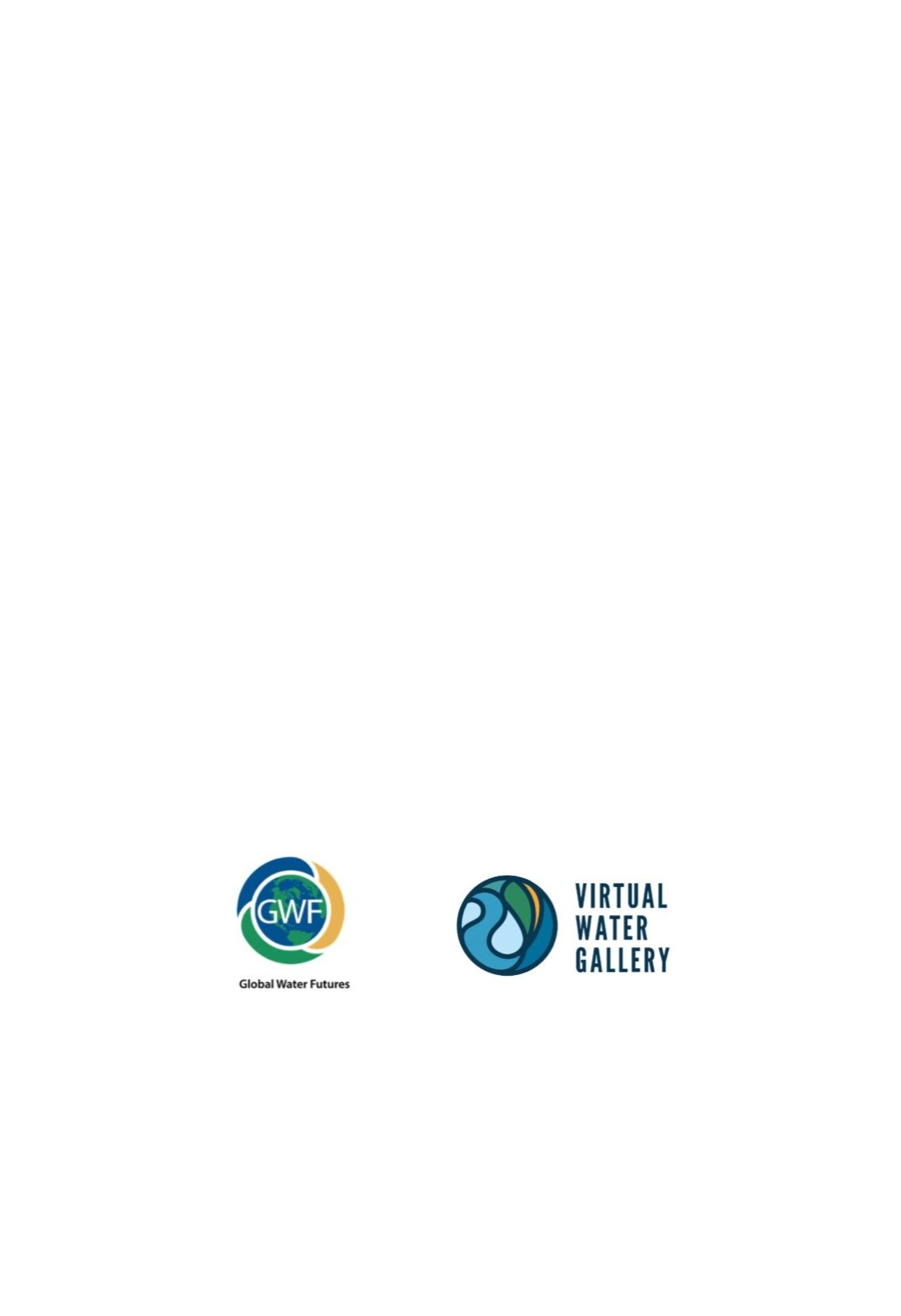Visit the Virtual Water Gallery
Conversations between artists and scientists
The Virtual Water Gallery is a collaboration between scientists and artists studying water issues, coordinated through Global Water Futures. I spent the past winter studying the effects of thawing permafrost in northern Canada. I feel fortunate to be collaborating with Dr. Jennifer Baltzer, of Northern Water Futures, on an art project we’ve called “Life Support.”
Here’s what I’ve learned so far:
Canada’s north is among the most rapidly warming regions on Earth. The speed and scale of recently observed changes throughout the arctic show unprecedented changes in snow cover and rates of permafrost thaw. Ecosystems are rapidly changing — forests to wetlands, lakes to thaw lake basins, tundra to shrub vegetation. The movement of water over the landscape is changing, too, in ways that are difficult to predict. The flow and health of streams, rivers, and lakes, including key waterways used for hydropower, water supply, and transportation, are affected. These changes impact the health, well-being, safety and livelihoods of northern communities. Resource exploration and production is expected to expand in the north in the coming years, including construction of new highways, pipelines and other infrastructure. The security of water resources and the health of arctic ecosystems are at stake.
In the north, permafrost forms the foundation — the life support — for the flora and fauna that inhabit this region and the way water moves around the landscape. Changes in permafrost changes the structure and functioning of the northern ecosystems. The soils of the north are incredibly carbon rich, so as permafrost thaws, this organic matter is broken down by microbes, resulting in the release of carbon dioxide and methane on a massive scale. Enough to speed up global warming in an unpredictable way.
Melting permafrost affects water. Frozen soils have long locked away carbon, nutrients, and various potential toxins, and thawing releases these compounds into the associated waterways. Where abrupt thaw leads to slope failure, the downslope streams and rivers may be blocked completely, altering flow, or have excessive sediment loads leading to turbid, polluted environments. In other places, thaw is leading to increased methylation of mercury and contamination of the fish upon which Northern communities rely, undermining the health and well-being of these communities. More broadly, because of the biome-wide scale at which these changes are occurring, the effects of permafrost melt are far-reaching enough to affect the Arctic Ocean.
I’m continuing to have conversations with scientists and artists working on related projects, including a Creatively United webinar that can be accessed at: https://creativelyunited.org/cold-matters-climate-artist-series/
— Rhian Brynjolson

“We are losing the pristine ecosystems we remember from our childhoods.”
- John Pomeroy, Global Water Futures
Please continue to support these environmental groups making a difference in Manitoba:
CPAWS Manitoba (Canadian Parks and Wilderness Society) helped more than double protected areas in the province in the past decade through the establishment of 21 new parks and protected areas. https://cpawsmb.org/
Manitoba Eco-Network is a non-profit organization which promotes positive environmental action. Our organization’s mission is to facilitate environmental awareness and expand community connections. We educate, we facilitate, we celebrate! https://mbeconetwork.org/
Nature Manitoba is people sharing a passion for nature. Our goal is to provide opportunities to connect with nature, promote an appreciation and understanding of nature, and to enjoy it in a non-intrusive and nondestructive manner. https://www.naturemanitoba.ca/
Wilderness Committee Manitoba — Since 1999 Wilderness Committee staff have been on the ground in Manitoba, pushing for protection of wild spaces, wild species, and healthy communities. Our first campaign in Manitoba was to end logging in provincial parks, which we had success within 2008 when all but one Manitoba Park banned logging. We continue to press for an end to mining and all industrial activity in provincial parks. https://www.wildernesscommittee.org/manitoba
The Nature Conservancy of Canada (NCC) is the country’s largest national land conservation organization. Since 1962, we have helped to protect 14 million hectares (35 million acres) across the country. https://www.natureconservancy.ca/en/where-we-work/manitoba/
Climate Change Connection is a charitable non-government organization working to educate Manitobans about climate change. We build awareness of climate change so Manitobans will reduce their greenhouse gas (GHG) emissions – both individually and as a community; and facilitate climate change solutions. We work to expand our network and get involved with people and groups who are working toward climate change solutions. http://climatechangeconnection.org/about/
Lake Winnipeg Research Consortium — We are a registered charity, coordinating scientific research on Lake Winnipeg and providing unique on-board opportunities to educational institutions. https://www.lakewinnipegresearch.org/
LWF (Lake Winnipeg Foundation) is an environmental non-governmental organization advocating for change and co-ordinating action to improve the health of Lake Winnipeg. https://www.lakewinnipegfoundation.org/
